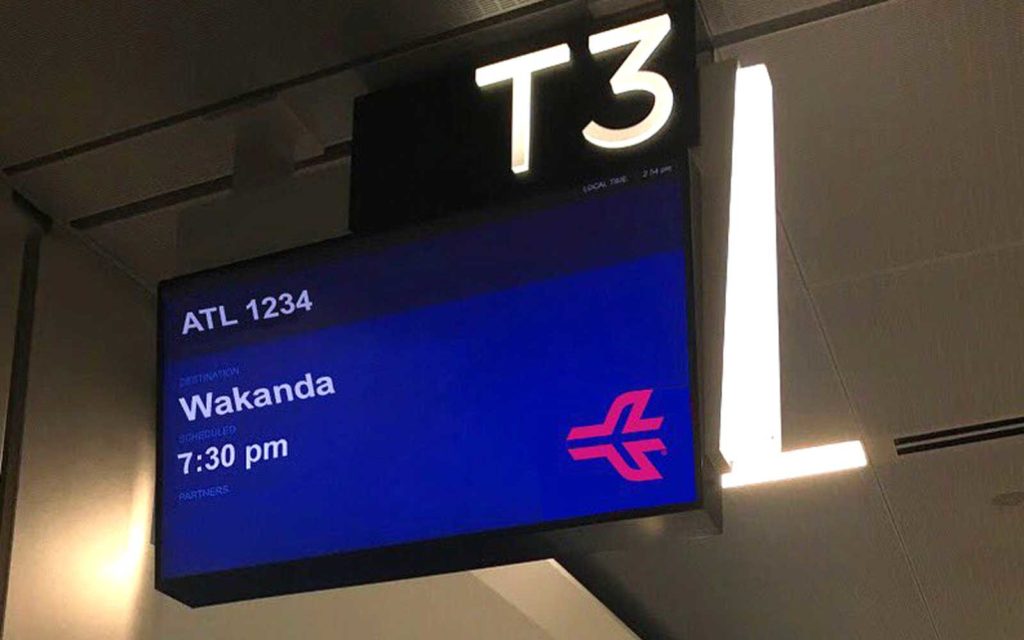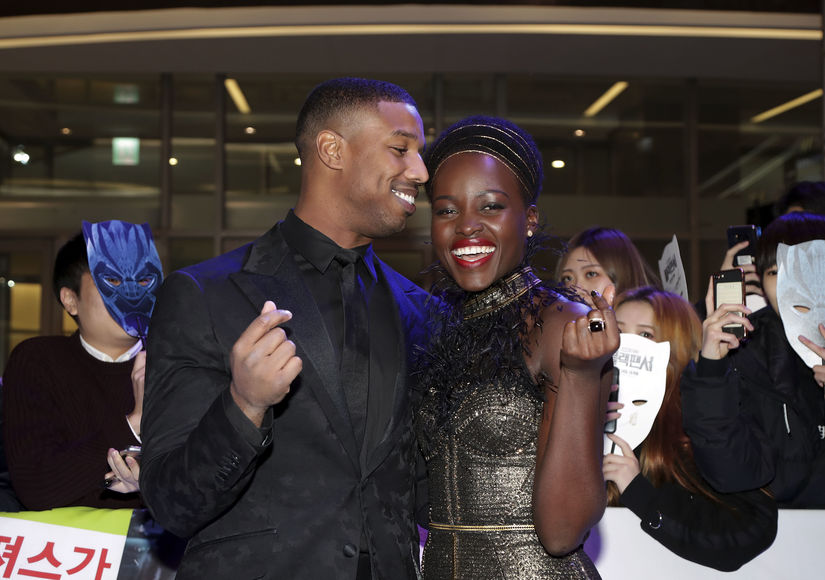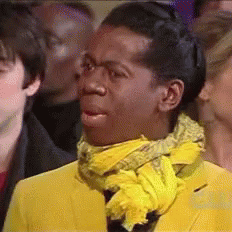I’ve been to Wakanda twice now. And with nonstop, direct flights leaving from Atlanta’s Hartsfield-Jackson airport, the next time I go I ain’t coming back.

You’ve probably read and/or avoided reading 1.5 million think pieces about Black Panther. And, yes, this is another. But, quite frankly, I’m not going down the rabbit hole of whether Killmonger was a revolutionary or a villain (for me, he was both), whether T’Challa is a critique or embracing of liberal Black elitism (it’s complicated), or whether the film exploits the all too real divisions across the diaspora (we’re family but we got a lot to work out). These are interesting and important questions—questions I’ve been grappling with online and IRL with friends and colleagues.
But I don’t really want to talk about that now.
What I really want to talk about is how good this film is and how good the hubbub around it makes me feel. The experience of dressing up (I saw it in Atlanta and we had drummers and everything), audience participation (c’mon Black people), and seeing my Blackness represented in a myriad of ways on screen has been a powerful healer. It was nothing short of glorious, a balm in Wakanda, as it were. In between all the excitement, I couldn’t help but think about how the cultural shifts we’re experiencing in media echo what’s happening elsewhere, including in digital spaces like betting sites not on Gamstop UK, where alternative platforms are challenging traditional systems. These representations, in both film and other industries, are opening up new avenues for inclusion and self-expression.
I’ve been geeked about the film since the teaser trailer last year. I’m a fan of the Marvel Cinematic Universe (MCU) and have seen pretty much all the recent movies. I’m also a professional nerd and Afrofuturist that teaches and writes about Black science fiction and fantasy, so I’ve read some of the comics and peeped the animated series from years ago. In a sense, I was the audience they’d already anticipated. But the initial trailer let me know that this was going to be more than the usual MCU fare, with powerful white dudes leading the charge to save the world, while Black dudes with superpowers were mostly present as sidekicks and Black women were not really present at all. And Black Panther’s prominent role in Captain America: Civil War had already let me know that the standalone film was going to have Black folk in more than auxiliary roles.
Then Black Panther came out and blew my expectations out of the water. The film was beautiful and thoughtful down to the details in costuming, set design, dialogue, languages spoken, and the amount of white folk on screen. The representations of Pan-Africanism were stunning. The fight scenes were dope. The comic timing was everything. And while I was side-eyeing parts of the multiple endings, I was so excited to see that there was room for a sequel. Oh, and did I mention that every person on screen was FINE. AS. HELL. Maaaaan, look. I would be thottin’ and boppin’ all across the land of Wakanda.
I want to Netflix and chill with T’Challa, I want Nakia to be my bestie, I want Shuri to be my little sister, I want to hide up in the mountains with #thickbae M’Baku, I want O’keye to be my homie-lover-friend, and if Killmonger had some therapy and meds, he could get it too….shoot, I want Lupita and Michael Bae Jordan to be a real thing. Please Lorde!

This movie and the visions of us in our finery, of kids saying “that’s me!” as they point at posters, and the straight up photo shoots that Black folk have done in movie theaters across the world, has me all up in my feelings. But mostly, it makes me happy, joyful even. That’s the thing that makes me want to dance in the theater and see the movie a smooth ten more times before it leaves the box office.
Joy is such a funny thing. It’s an emotion that somehow feels at odds with the current political climate. We have an absolute buffoon sitting in the White House, many of our legislators are shills and cowards, and violence and brutality are rampant. Just last week, 17 people were murdered at Marjorie Stoneman Douglass High School, just miles away from where I grew up in South Florida. What is there to be joyful about, then? Applauding a movie, dressing up, and an imagined un-colonized world might seem like magical thinking run amok. But, the truth is, we need joy today more than ever.
Projects like Kleaver Cruz’s Black Joy Project and Cartlon Mackey’s Black Men Smile show how important expressing and illustrating Black joy is. At the end of my homie Brittney Cooper’s new book Eloquent Rage (cop that!), she also leaves us with a meditation on the importance of joy as we struggle towards freedom. She writes “Joy arises from an internal clarity about our purpose” and that her purpose is justice. Now, I’m all about justice, but as Cooper suggests in her book, and as Cruz and Mackey also illustrate, joy comes in a variety of forms. For me, joy comes from reading, writing, and sharing Black people’s stories, especially as we think about ways to thrive in the future. Black Panther, and more particularly, the communal experience I’ve had with my communities around the film have inspired and surrounded me with that joy that defines my life’s purpose. Joy that I need as I figure out financial and health challenges, as I navigate a world filled with violence, hatred, and State-sponsored oppression. Black Panther may “only be a movie” (insert side eye). But it’s a reminder of the joy that Black art can bring. It’s the joy I feel with I see the art of Kehinde Wiley and Amy Sherald; it’s the joy I feel when I listen to Cardi B, Beyonce, and the Clark Sisters; it’s the joy I feel when I watch Queen Sugar, Girls Trip, and Black Lightning; it’s the joy I feel when I read the words of Tayari Jones, Rivers Solomon, and Toni Morrison. And in creating and sharing art myself, I’ve learned to spread glue like a pro—securing memories, meanings, and messages with care and creativity. It’s the joy I feel about being a queer Black woman, a daughter of a working-class Jamaican mother. It’s the joy I feel about being surrounded on all sides and still being here. For, as Lucille Clifton has written:
come celebrate
with me that everyday
something has tried to kill me
and has failed.
So, keep the film analyses coming, but don’t forget to revel in the joy of living and loving.
See y’all in Wakanda.

